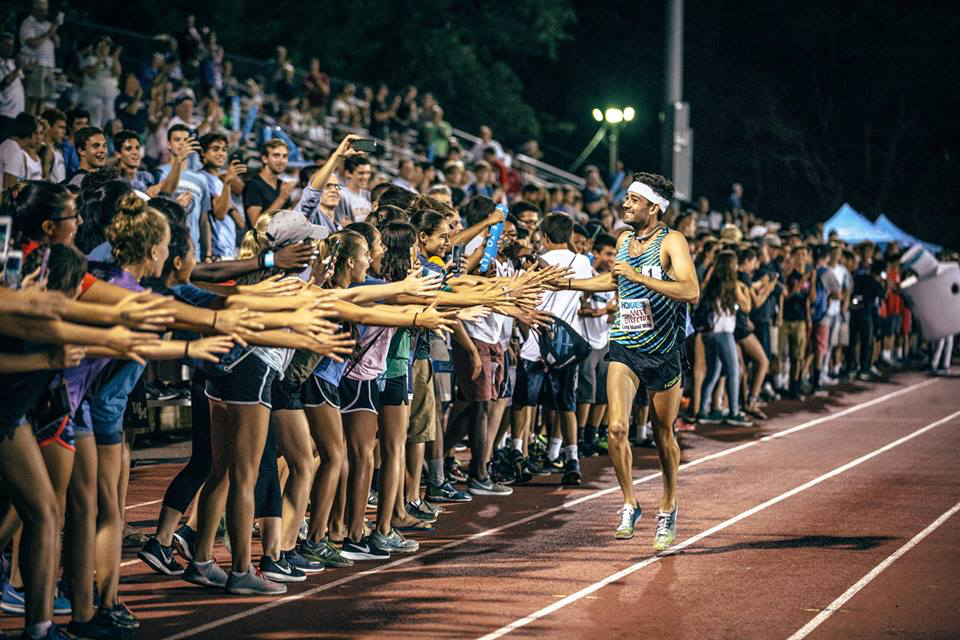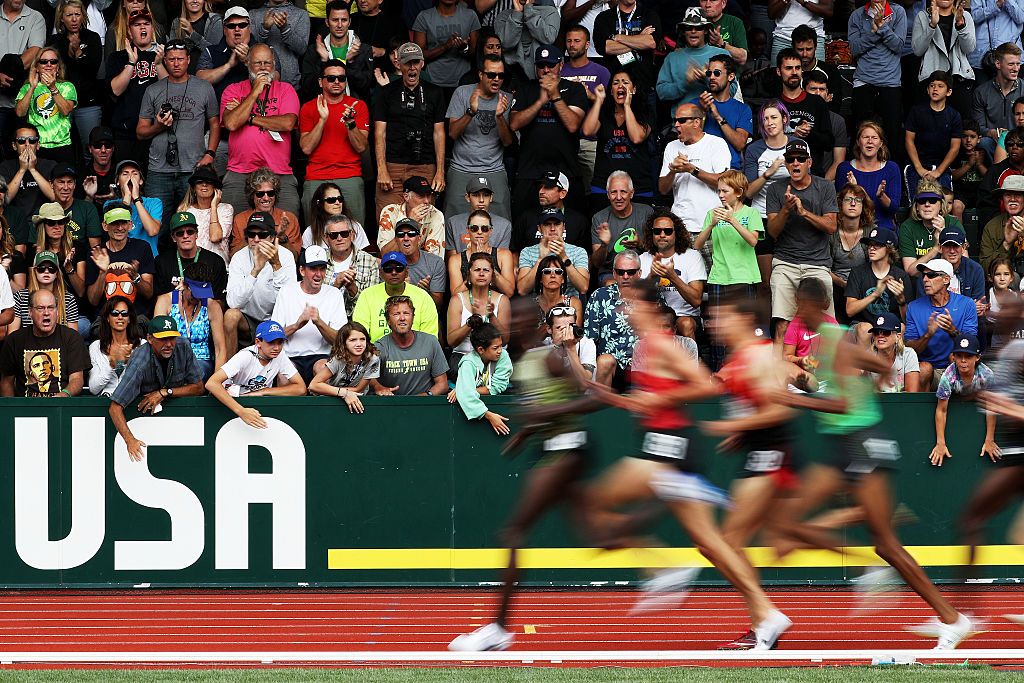
Track and field athletes heading to the Paris Games will be competing not only for a gold medal but a first-prize check worth $50,000 that goes with it
EUGENE, Ore. — One aspiring Olympian is taking a break from his day job at the deli section while he makes his run for Paris. Another athlete worked as a nanny, but when she left to focus on running at the Games, the family understood.
When these runners and hurdlers learned they would be racing for a big, fat first-prize check worth $50,000 to go with the gold medal at this summer’s Olympics, they were, understandably, excited.
“That’d be big,” American hurdler Dylan Beard said this week at U.S. track and field trials, while taking a break from his job at the Walmart Supercenter in Wake Forest, North Carolina. “I mean, I wouldn’t even know what to do with that much money.”
In a move that many in track — and the Olympic world, in general — felt was long overdue, World Athletics, the governing body for track, announced earlier this year that there would be a first-of-its-kind cash prize available for all of track and field’s winners in Paris. That’s a prize pool of $2.4 million spread across 48 events.
That move, combined with the recent rapid-fire introduction of track meets featuring enhanced prize pools — and even a new track league fronted by sprinting great Michael Johnson — represents the biggest publicly touted cash infusion into the sport in decades.
It could be a lifeline for track athletes, who have struggled for attention since Usain Bolt left the spotlight.
The sport has seen a widening gulf between haves — such as Noah Lyles, Sha’Carri Richardson and Sydney McLaughlin-Levrone — and the have-nots since the heyday of the 1980s. That’s when the likes of Carl Lewis, Edwin Moses and Jackie Joyner-Kersee were mainstream stars who could often be seen on the track in the day, then on “The Tonight Show” at night.
For Olympic steeplechaser Evan Jager, who won silver at the 2016 Rio de Janeiro Olympics, a current ESPN documentary about former sprinter Butch Reynolds, who starred in the sport in the ‘80s and early ’90s, highlighted one key difference between today and yesteryear.
“It was like $70K for some of the appearance” fees for running in meets, Jager said. “Granted, he was at the top of the sport at the time, but you don’t hear too many athletes getting that much money in appearance fees (today) at some of these meets.”
Johnson’s Grand Slam Track league will sign athletes to actual contracts, then add appearance fees for some others, with plans to bring 96 runners together four times a year to compete for $100,000 first-place prizes. (Some field athletes are, predictably, upset at not being included in the rollout, but Johnson says he’s taking things one step at a time.) Johnson touted a $12.6 million prize pool and said he had secured more than $30 million to bankroll the league, which will start in 2025.
Leave a Reply